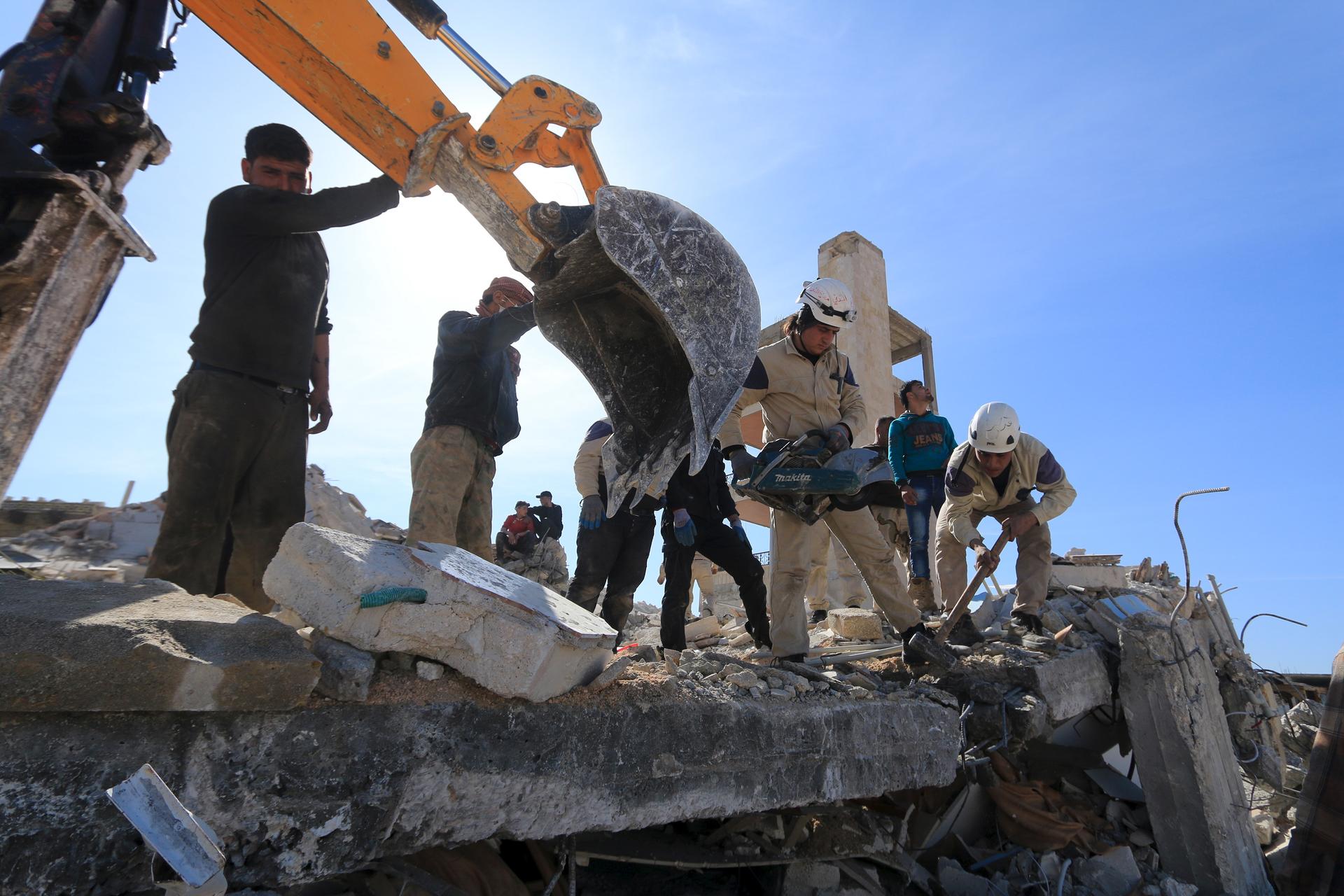People and Civil Defense members remove rubble while looking for survivors in the ruins of a destroyed Medecins Sans Frontieres (MSF) supported hospital hit by missiles in Marat Numan, Idlib province, Syria, February 16, 2016.
Hopes for a "cessation of hostilities" in Syria slated to begin this week seemed distant this week after airstrikes on hospitals in the region left at least 50 people dead, according to the UN.
Five medical facilities and two schools were attacked in the southern and northern parts of the country. Among those was a Doctors Without Borders hospital in Marat Al Numan Idlib where 11 people were killed. Another two were International Rescue Committee facilities in Idlib and an IRC-supported clinic in Dera’a. An IRC center for women in the border town of Azaz also suffered blast damage from an air strike. The IRC reported 26 patients and medical workers killed.
"I think the situation inside Syria is a war without law and a war without end," said David Miliband, president and CEO of the IRC, and former foreign secretary in the UK. “And I’m afraid that our workers and the people they serve are daily subjects to the Assad regime, [and] its barrel bombing missions.”
The attacks came a day after President Barack Obama urged Moscow to halt its aerial bombing assaults and three days after President Bashar al-Assad said he would continue to pursue the war until he regained control over all of Syria.
Though the US has been criticized for having a weak Syrian policy, Miliband believes there have been “strenuous attempts by the Obama administartion, the president himself, but also Secretary [of State John] Kerry, to engage Russians in a constructive way.”
The hospitals are believed to have been targeted, with the attacks being led by forces supporting Assad. Russia is suspected of having a hand in them, however, nothing has been confirmed.
Miliband says IRC facilities are clearly marked, as are most during wartime, to ensure their safety. France’s foreign minister said the attacks “could constitute war crimes.”
“The Syrian war has shown … both on an individual level and a community or collective level, there’s been a refusal of the parties to the conflict to recognize the sanctity of medical aid,” said Miliband.
According to the IRC, an estimated 90,000 people will now be without medical care.
Entering it's sixth year next month, Miliband says he doesn't see the war ending anytime soon.
“Wars end when one of two conditions is observed: One is that one side wins. I don’t see that happening at the moment. The second condition is that there is sufficient incentive to compromise because of the losses on each side, which is certainly not clear either,” said Miliband.
“And that’s why I described this as currently a war with no end. … There’s sway on the battle field from one year to the next. I think the most likely outcome at the moment is that at some point there will be a de facto division of Syria.”
Every day, reporters and producers at The World are hard at work bringing you human-centered news from across the globe. But we can’t do it without you. We need your support to ensure we can continue this work for another year.
Make a gift today, and you’ll help us unlock a matching gift of $67,000!
